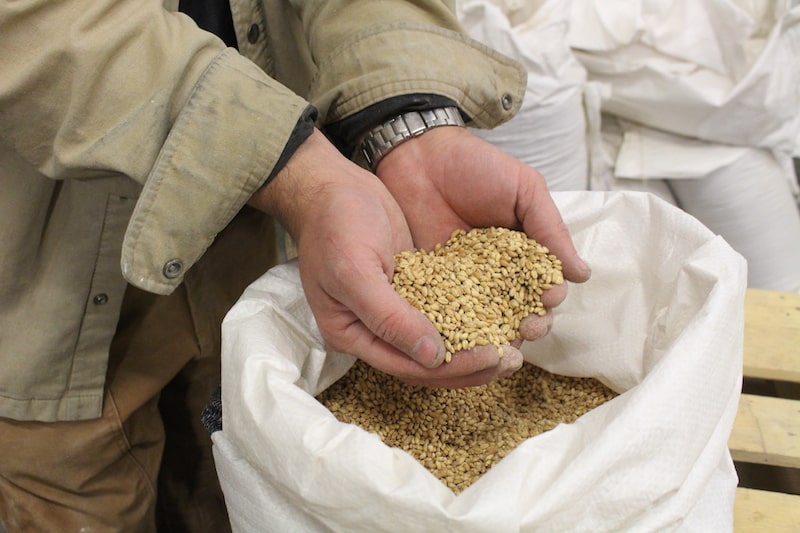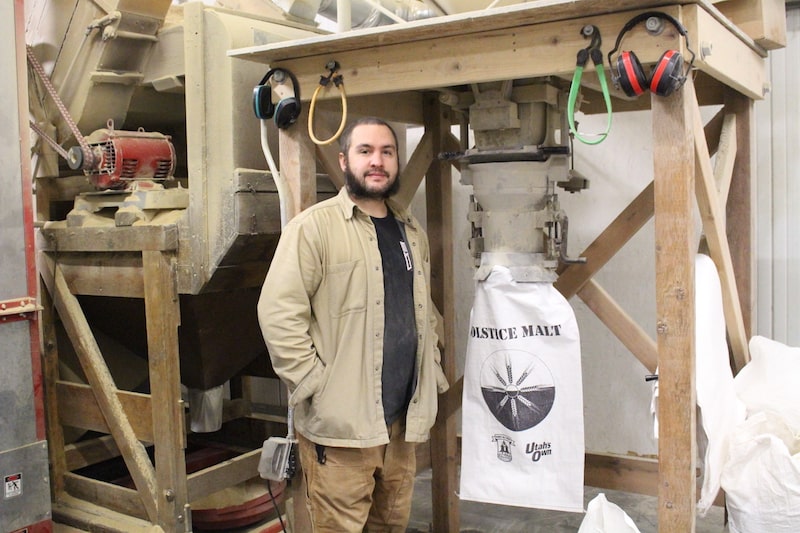
James Weed was working 12-hour days in finance when his wife told him he needed to get a hobby.
“She got me into homebrewing,” recalls Weed with a laugh. “I’m the type of guy that likes to do things himself, so I started growing my own hops and malting my own barley.”
But finding small-scale equipment to malt the grain proved to be difficult. Online research led him to the Craft Maltsters Guild, an organization devoted to promoting small, local malting operations across North America.
“I went out to the East Coast and visited a few of these malthouses and saw a potential for starting a business here in Utah. Utah can grow really good malting barley if you just go a little bit north of us,” explains Weed.
After a few years of collecting vintage malting equipment in his garage and yard, Weed secured a refrigerated warehouse in Salt Lake City, and Solstice Malt became the sole craft maltster in the Beehive State.
Sourcing barley and other grains from Utah farmers in Cache Valley, Myton and West Jordan, Weed began malting the grains using the floor malting method, which has ancient roots and a deep connection to Scottish distilling. During the process, grain is steeped in water to kickstart germination, then laid on a large concrete floor in a temperature-controlled room where Weed manually turns and rakes the grains to aerate and prevent heat from building up.
As it grows and the rootlets emerge, the seed converts its starches into sugar, which, if left to continue, would fuel the seeds’ growth into a plant. The sugar is what ferments into alcohol, so Weed moves the grain to a large kiln for roasting, a process that stops the growth and develops flavor and color.

Solstice Malt now supplies a growing number of breweries and distilleries — including Proper Brewing Co., Level Crossing, Toasted Barrel Brewing, Hopkins Brewing, to name a few — with malt.
“I got to learn a lot about the brew scene. It was really easy. I’d go to one party with a head brewer and there were seven other head brewers there,” says Weed. “It really struck me — coming from finance where it is so cutthroat and your only job is to kill your competitor and going to an industry where people are happy to drink each other’s beers and figure out each other’s problems.”
Today, Weed sits on the board of the Craft Maltsters Guild and continues to innovate his products in ways that industrial malting operations just can’t do.
“Since I’m really small, I’m really nimble. The bigger malthouses will do more in one batch then I do all year. I have the freedom to do some experiments on a smaller scale,” explains Weed. “I’m producing stuff that they couldn’t put 300 tons of malt towards. Brewers have been digging it. A lot of them are always looking for the next newest thing.”
Weed now offers smoked malts and has experimented with unique flavors, such as grains smoked with hazelnut shells.
“Hops are definitely the golden child. They’ve had the spotlight for 20 years, and I think they are the big reason why craft beer is such a thing but there’s a movement towards craft malt and using local grains and their terroir,” says Weed. “Malt is the backbone or soul of beer, as I’ve heard before. A lot of people aren’t hop heads, and they’d rather get something malt forward. Breweries need to brew for that.”
Solstice Malt 3528 W 500 S #6th, Salt Lake City
Subscribe to Utah Stories weekly newsletter and get our stories directly to your inbox





